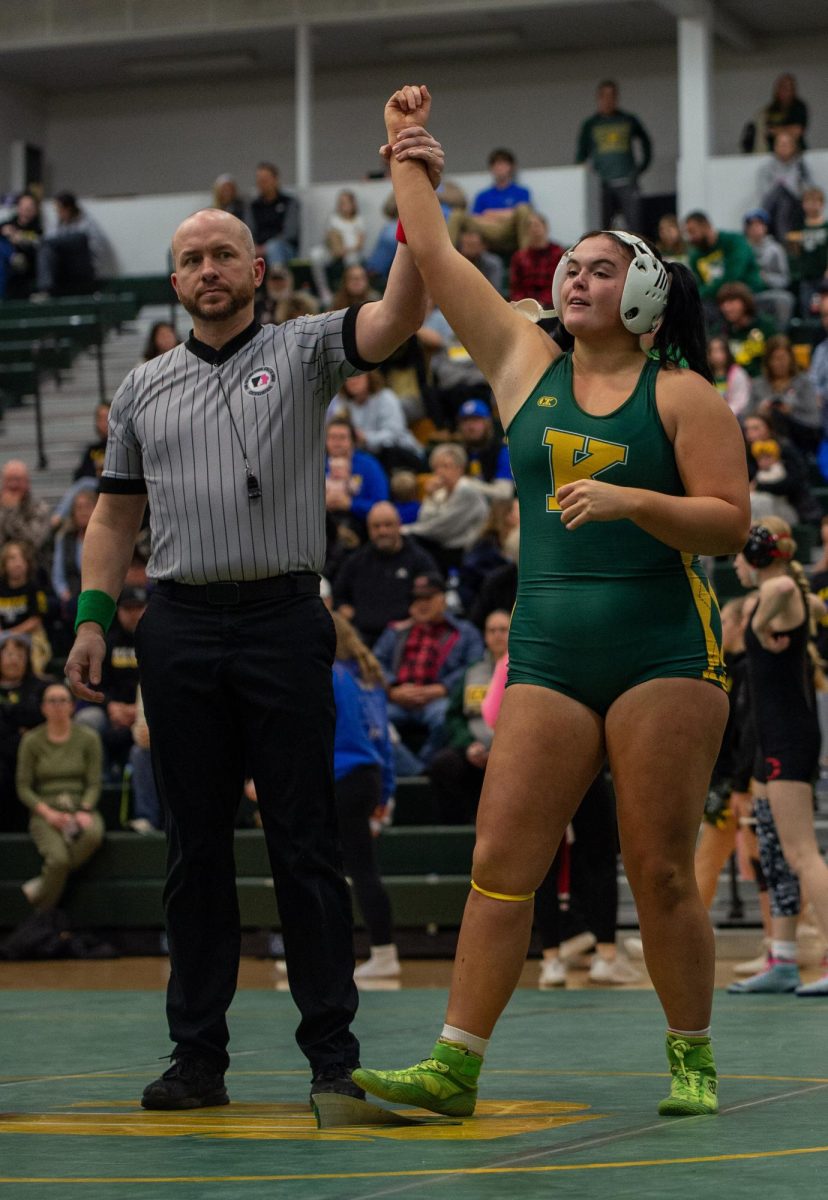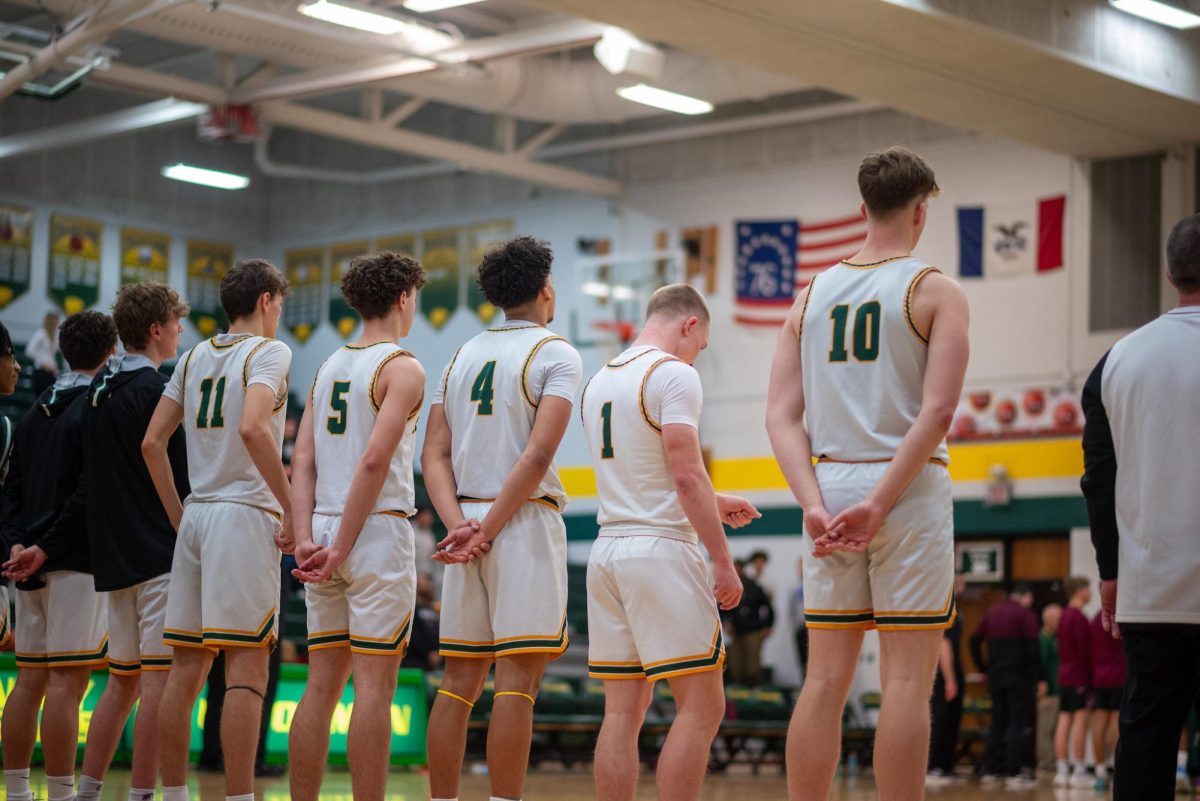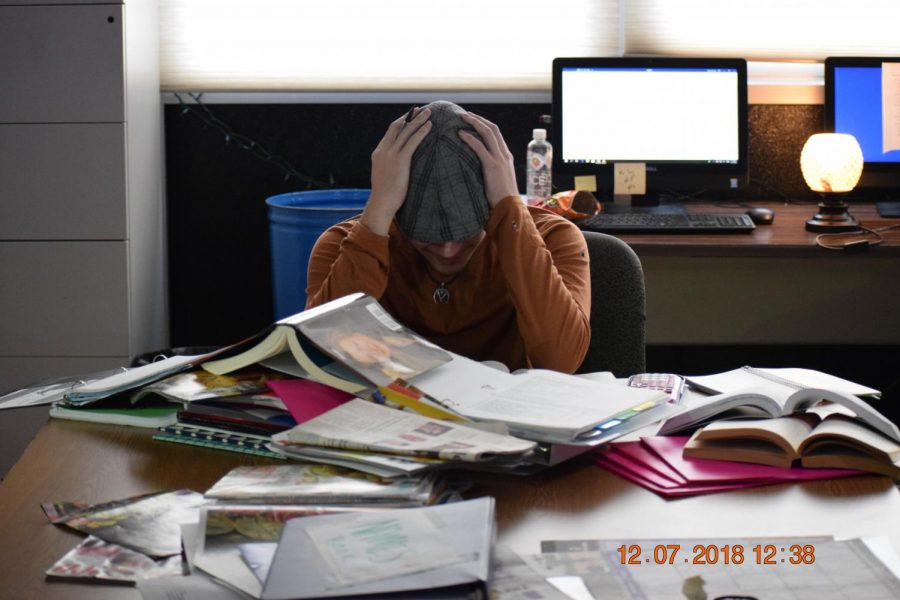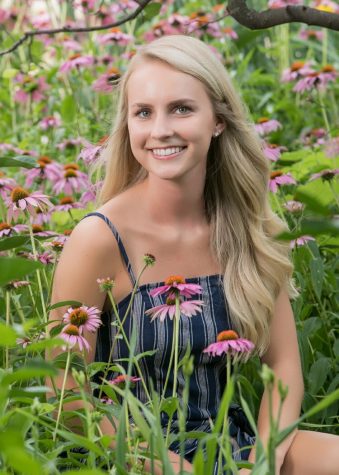Anxiety the Bully
Kennedy students struggle with anxiety on a daily basis. Photo by Jenna Anderson.
December 20, 2018
High school is hard enough and living with an anxiety disorder makes it worse. The confiding hallways, unpredictable interactions, and the stress of trying to balance life’s highs and lows. For students suffering with anxiety disorders, the normal day to day stress is magnified, sometimes to an uncontrollable level of constant fear and worry.
19 million people in America suffer from anxiety a year. Yet it is one of the least understood mental illnesses. Often dismissed and misunderstood we need to do a better job on understanding, supporting, and caring for those with anxiety disorders.
We can start by comprehending the root of anxiety more. The development of anxiety disorders primarily starts in adolescents and teens.
The author of Anxiety disorder writes, “Anxiety disorders as a group are the most common form of mental illness among children, but they are often underreported and undertreated.”
Causes of anxiety disorders aren’t fully understood. The reason for anxiety disorders range from imbalance of mood hormones in the human brain to a traumatic experience in one’s life as is depicted in the documentary It’s “Just” Anxiety. Some anxiety disorders can be passed down genetically making anxiety a hereditary disorder.
The most common anxiety disorder is GAD, otherwise known as Generalized Anxiety Disorder. GAD is caused by imbalances of mood hormones in the human brain. Commonly, depression and anger/ behavioral disorders come along with GAD.
Anxiety is interconnected with multiple other mental illnesses. Another major type of anxiety disorder is Posttraumatic Stress Disorder (PTSD). PTSD is frequently caused by being exposed to traumatic events. Such as rape, sexual or physical abuse, seeing a car accident or medical emergency, and war.
The effects of PTSD differentiate among each person. Factors of the effects can be altered or determined by gender and age. Certain people cope with PTSD in different ways while struggling with different symptoms. For example, men tend to have externalizing symptoms like aggression or hyper activity, and women frequently have internalized symptoms such as sadness and anxiety.
The third major anxiety disorder is specific phobias. Specific phobias are unreasonable fears of a certain object or situations. When someone suffers from a phobia they avoid or endure the object or situation with fear and stress.
Multiple people with phobias must make sacrifices because they struggle doing everyday normal functions. For example, the inability to go outside, socializing with others and friends, and separation from home or parents.
When I said high school is hard enough and anxiety makes it worse, I meant it. Imagine living in a world where your mind doesn’t stop. Your head is constantly spinning, and it doesn’t stop when it’s time to lay down and go to bed. Your worry about irrelevant things all day long. You’re in the state of mind of constant worry and fear.
Author Jamie Blyth says, “When you have anxiety you’re just trying to get up and trying to get through the day.”
Being a senior in high school, I can relate. Having to balance academics, family, friends, and extracurriculars is overwhelming as it is. With anxiety disorders all of this is magnified at full force. As a person with anxiety you’re always thinking about what’s around the corner.
In the documentary, It’s “Just” Anxiety, Terri Jury says, “Anxiety is like a bully it knows every part of you and can use it to its advantage.”
Having an anxiety disorder can affect a teens’ everyday performance at school and in other aspects of life. Commonly teens feel the need to be perfect or live up to everyone’s standards around them. Frequently those struggling with anxiety disorders are the most critical about themselves.
Having an anxiety disorder isn’t the end of the world. Many people can live and manage anxiety disorders with help. Multiple people suffer from this disease but feel afraid to reach out and seek help. Don’t be afraid. 19 Million people live with anxiety, and you’re not alone. There a multiple different ways to treat anxiety disorders and your doctor can find the right one for you.
The most common way to treat anxiety disorders is psychotherapy, otherwise know as “talk therapy”. This may seem silly to some, but just talking about your problems and feelings with a therapist is one of the most effective ways to cope with anxiety disorders. The psychotherapy with the most research is Cognitive Behavioral Therapy (CBT).
CBT helps the patient with coping skills and gives them opportunities to practice these skills to develop a sense of control in everyday situations that may normally provoke anxiety.
Medication is another effective way to help treat anxiety disorders. According to current research in youths with anxiety disorders, the most effective medications are in a group of antidepressants known as selective serotonin reuptake inhibitors.
Anxiety disorders are an extremely complex concept to understand. Sucheta Conolly states, “Think of the most complicated aspect of our universe then multiple it by infinity…the brain is by the far the most challenging entity to understand”.
You’re probably thinking, “Great if all these scientists can’t understand anxiety disorders how am I supposed to? What if I have one myself, what if my best-friend does?” The first step is realizing you or a friend actually has an anxiety disorder. The next step is seeking help if or when you need it. That could only be meeting with your doctor and deciding what to do from there.
There’re multiple ways to get better, like going to a therapist or getting on medication, the world will not end if you have an anxiety disorder. Being in high school is hard enough and having an anxiety disorder makes it worse, so why not seek help if you need it? Anxiety is a disease and we need to do a better job understanding, supporting, and caring for those with anxiety disorders.




























